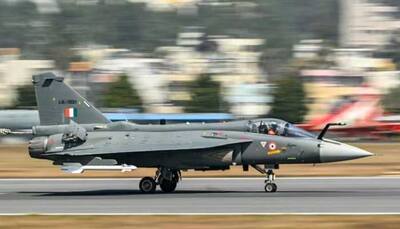New Delhi: In a world that often confuses noise with strength, restraint is underrated. But according to renowned war historian Tom Cooper, it was precisely India’s strategic restraint, if not bravado, that tilted the scales during the post-Pahalgam military face-off with Pakistan.
The April 22 terror attack in Kashmir’s Baisaran meadow that killed 26 civilians triggered an immediate Indian military response in the form of ‘Operation Sindoor’ – a swift, precise and punishing strike on nine terror-linked sites in Pakistan and Pakistan-occupied Kashmir. However, what followed was more telling than the operation itself.
“India could have gone further. It could have crippled Pakistan’s nuclear infrastructure. It had the means. But it did not,” said Cooper in a recent interview.
According to Cooper, India’s military had access to strike Pakistan’s nuclear storage facilities – a move that could have drastically changed the region’s strategic landscape.
“Indian generals are cautious. They understand the gravity of crossing that line. And that is what makes this different. The real story is not what India hit. It is what it chose not to,” he said.
This, he argues, was the quiet victory – decisive yet controlled.
While Pakistani leadership threatened retaliation, their actual military response, according to Cooper, was ineffective. “They launched UAVs and missiles in large numbers. But what did they accomplish? Nothing significant,” he said. Indian air defenses, in his words, remained “vivid, active and lethal”.
Meanwhile, India continued its operations with surgical precision, neutralising key elements of Pakistan’s air defense network. Cooper points out that even Pakistan’s follow-up airstrike yielded no serious consequences. “India was not only prepared, it was unshaken,” he added.
Cooper’s analysis reframes the narrative. Unlike past skirmishes, this was not about chest-thumping or international mediation. It was about control – of arsenal, emotion and narrative.
“Pakistan tried to escalate and failed. India could have escalated but did not. That is not just military superiority, it is psychological dominance,” Cooper said.
This is not the story of a battlefield soaked in conquest. It is the story of a country that knew where to hit and where to stop.
In a region where history often rhymes with violence, ‘Operation Sindoor’ may be remembered not only for its military impact but for the message it carried – that modern warfare is not only about firepower. Sometimes, the loudest message is delivered in silence.
And that silence, according to Cooper, may have just saved South Asia from the brink.
Stay informed on all the , real-time updates, and follow all the important headlines in and on Zee News.








